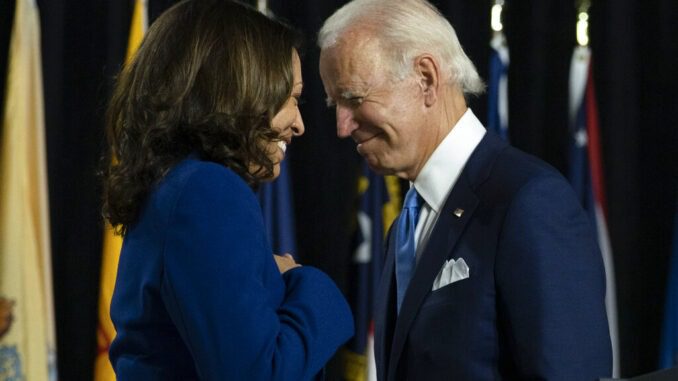
Joe Biden will become the oldest president inaugurated when he takes the oath of office on Wednesday, Jan. 20. At the age 78, he is at the average life expectancy age in the United States, according to data from the World Bank.
There are no indications Biden faces immediate health issues – his doctor said in a Dec. 2019 letter he was “healthy, vigorous, and fit to successfully execute the duties of the Presidency.”
Yet, should Kamala Harris become president at some point in the next four years, she could run as an incumbent for one – or possibly two – terms at the top of the Democratic ticket.
The 22nd Amendment of the Constitution says:
“No person shall be elected to the office of the President more than twice, and no person who has held the office of President, or acted as President, for more than two years of a term to which some other person was elected President shall be elected to the office of the President more than once.”
Passed following the four elected terms of President Franklin D. Roosevelt, who died in office, the amendment was established to limit the election of presidents to two four-year terms. The amendment has never been used.
Should Harris become president in the first two years of the term beginning Wednesday, should would be eligible to serve one additional term as president.
If Harris takes over in the final two years of the term, should would then be eligible to run for two terms as president.




